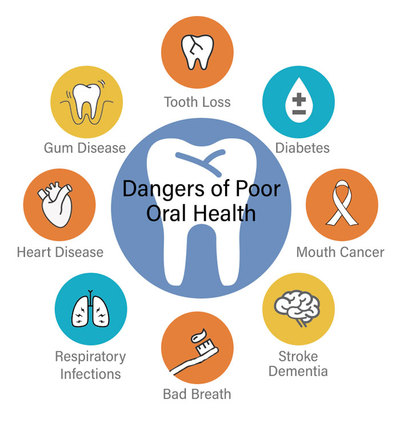There are many ways to improve your dental health. You can learn about the causes of gum disease and tooth decay, how to prevent oral cancer, and how to treat sensitive teeth. By practicing good oral hygiene, you can prevent diseases and bad breath. Your dentist can recommend a dental health hygiene program that will meet your needs and your budget.
Prevention of tooth decay
The best way to protect your teeth from decay is to avoid the foods and drinks that cause it. These include sugary drinks and candy. Even gummy vitamins and fruit leather can erode enamel. Using an antiseptic mouthwash is also essential. You should also limit the amount of sugary snacks you eat. Drinking plenty of water is also helpful, as most water contains fluoride.
Tooth decay is a widespread problem that affects nearly every adult. If left untreated, it can lead to tooth loss and other serious illnesses. About nine out of ten adults over the age of 20 have some degree of tooth decay. Fortunately, there are many effective treatments for dental health decay.
Prevention of gum disease
There are several steps that you can take in order to prevent gum disease. First, you should clean your teeth daily. This means brushing and flossing. It is also an important way to prevent the development of periodontal disease because it prevents bacteria from building up between teeth.
Secondly, visit your dentist regularly. The dentist will clean your teeth and check for signs of gum disease. Gums that are healthy will be pink, fit tightly against your teeth and should not bleed during brushing or dental health cleaning. You should also make sure to brush and floss your teeth at least twice a day.
Prevention of oral cancer
Preventing oral cancer is essential to overall dental health, and early detection is key. While some growths within the oral cavity are benign and can be removed at the time of a routine check-up, others may be precancerous and require further evaluation. In such cases, a dentist should refer the patient to an oral cancer specialist for testing. In many cases, oral cancer develops from precancerous lesions within the oral cavity tissue.
While tobacco and alcohol use are major risk factors, a balanced diet that includes fruits, vegetables, fish, low-fat or low-cholesterol meats, and whole grains can lower your risk of developing oral cancer.
Treatment of sensitive teeth
Treatment of sensitive teeth can be tricky and a dental health team will need to talk to you about your specific case and then take a look at your teeth to determine the cause. If they believe the problem is dental in nature, they may treat your teeth with fluoride products or other de-sensitising agents. Fluoride can also help to protect your teeth from further damage, but you need to be consistent about your appointments to see results.
There are a variety of causes for sensitive teeth, from gum disease to decay. Fortunately, many of these conditions can be treated with thorough cleanings and restorations. In some cases, teeth can be reshaped with gum tissue or roots removed. In addition, there are many over-the-counter treatments for tooth sensitivity.
Signs of serious oral health conditions
There are a number of common signs that can point to serious oral health problems. Some of these symptoms can be harmless, such as bleeding gums after brushing, while others are serious, such as an infection. It is important to see a dentist if you experience any of these symptoms.
Your dentist can diagnose underlying health issues that may go undiagnosed. A dental health checkup is recommended twice a year. Your dentist can detect any dental issues that may be developing and refer you to other health care professionals if they are more serious.
Improve your dental health
Whether you want to improve your dental health or prevent oral problems, there are resources available to help you. These resources can range from videos to handouts that cover a variety of topics. Some of the topics covered are the basics of dental hygiene, fluoride, nutrition, safety, emergency first aid, and more. These resources also include recipes that are designed to help you keep your mouth healthy and free of cavities.
A healthy mouth is essential to overall health. Keeping your mouth clean can help prevent disease and keep your mouth healthy for life. If you are in school, your dentist or school-based dental program can apply sealants, which are protective materials that prevent cavities. There are also resources for older adults, caregivers, teachers, and parents.








